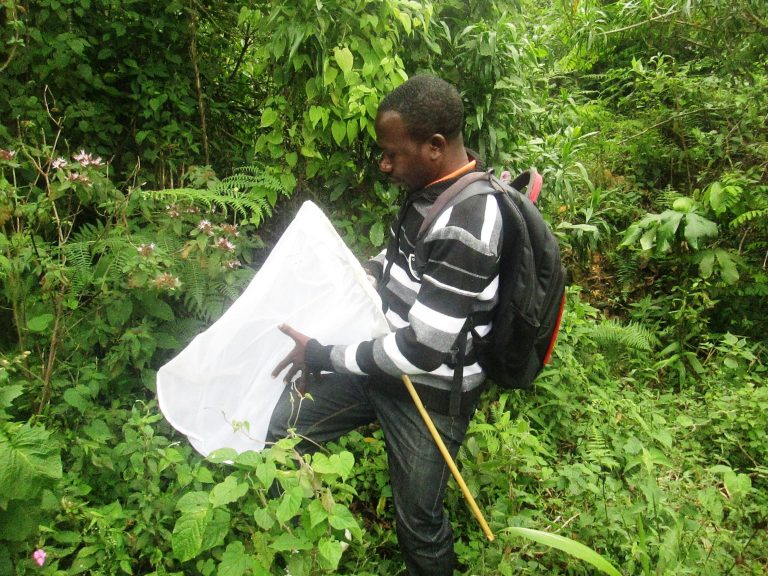Menu

Study of the impact of habitat degradation on the abundance and diversity of Syrphidae (Insecta: Diptera) in Burundi
Internship details
2018, 2019 and 2021
Royal Museum for Central Africa
Dr. Jordaens Kurt
Animalia – Arthropoda – Insecta – Diptera – Syrphidae
In Burundi, there is a high degradation and fragmentation of natural ecosystems and a strong increase of the area for food crops from 792,510 ha in 1982 to 1,295,000 ha in 2007. With this extension of agroecosystems to the detriment of natural forest ecosystems, an increase in agricultural production was expected. However, Burundi is experiencing a significant fall in crop yield. The reason(s) for this decline are unknown but it is generally accepted that a decline in invertebrate diversity, e.g. a reduction in pollinator abundance and diversity, significantly contributes to this decline. However, currently the research on the importance of pollinating invertebrates in agriculture in Burundi focuses mainly on bees. The role of hover flies (Diptera: Syrphidae) in these plant-pollinator networks remains particularly unknown even though they are known to represent an important component of pollinator networks.
This project aims to describe the diversity of Syrphidae in Burundi, and to improve their taxonomy to estimate the influence of natural ecosystem degradation on their abundance and diversity. On the long term, such data may assist in the development of a strategic plan to protect these pollinators in Burundi. This project is a joint initiative between the Burundian Office for Environmental Protection (OBPE), the Royal Belgian Institute of Natural Sciences (RBINS, Belgium) and the Royal Museum for Central Africa (RMCA, Belgium) and aims to increase the taxonomic capacity, and to establish a state-of-the-art Syrphidae reference collection at the OBPE.